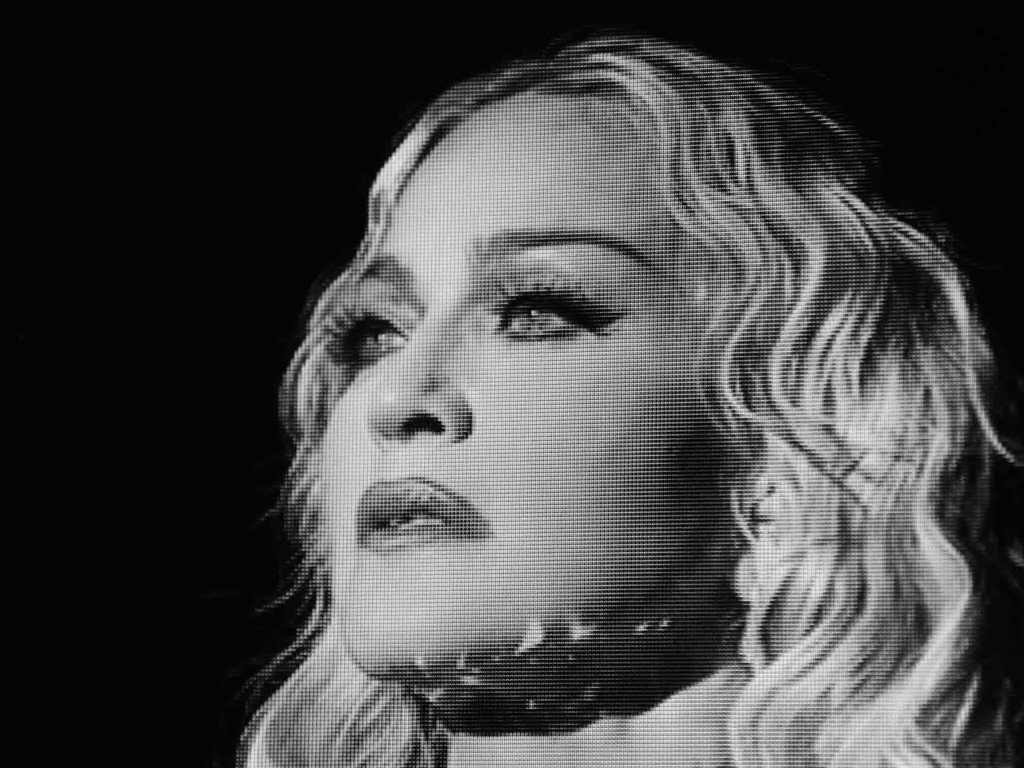How Madonna chooses to look is nobody’s business but her own.
Earlier this year, Madonna made an appearance at The Grammy Awards where she delivered a speech about empowering artists to persevere in the face of criticism. Following the speech, Madonna herself was met with criticism but not for its content, but rather for her appearance.
Tabloid news outlets rode the coattails of one another’s criticism over her physical appearance for months, but what many of them seem to neglect is how Madonna has always behaved in the public eye.
In the early 1990s, Madonna released a coffee table book titled “Sex,” depicting a catalogue of erotic photography and simulated sexual acts. The book’s release was in support of her fifth studio album Erotica: an era where she addressed politics surrounding gender, sexuality and eroticism. Despite the book’s controversy, its sales made it one of the top-selling coffee table books of all time, aptly following Madonna’s prediction as she said in an interview:
“It happened exactly the way I thought it would happen. Everyone was going to pretend to be disgusted by it and everyone was going to buy it.”
This instance is only one of many controversies over the course of her career, so why are people still surprised when Madonna pushes the agenda of what is comfortable? Her speech at this year’s Grammys only further accentuates that her provocative philosophy has stood firm and remained unchanging.
As her career dawned on the 2010s, criticism became increasingly directed at her physical appearance, making note of every sign of aging visible through paparazzi cameras. Beginning in 2006, articles were published surrounding Madonna’s allegedly photoshopped arms to remove the appearance of larger veins. An article published by the Daily Mail compares her arms before and after photos were edited or positioned differently, highlighting any signs of aging.
Another headline in the Daily Mail reads: “Madonna’s age gap… between her face and her hands.”
The article then goes on to dissect a public appearance she made, hurling an onslaught of vile comments.
Furthermore, commentary surrounding Madonna’s appearance dates back to when she was 35 when the now-defunct British music magazine Smash Hits told her to “calm down, grandma.”
With the rise of plastic surgery among Hollywood’s A-listers, there has been a clear shift of movements labelling themselves as empowering with the goal of encouraging women to “age naturally.” In the case of Madonna however, this appears to be obsolete, given that from her 30s to 50s she endured criticism for showing signs of aging.
If this new standard implies that women will be criticized for showing signs of aging that may be deemed “undesirable,” then it’s expected for cosmetic procedures to exist as a form of pressure. However, as established, if a woman appears to show signs of having a procedure done, the cycle then reverts back to encouraging women to once again “age naturally.”
Perhaps among this discourse, Madonna is seeking to express her own thoughts on the matter through her actions. Across the numerous decades of her career, she has continuously reinvented herself with every artistic endeavour. The one constant that’s been prevalent among these many eras is her unapologetic attitude towards doing exactly the opposite of what is expected of her as a global superstar.
Madonna’s speech reveals that she is unafraid of either side of the debate and is encouraging women everywhere to act the same. There should be no objective way for women to age. Instead, safe access to cosmetic procedures and resources must coexist with the idea that aging naturally is an equally acceptable option.
Ultimately, the paradoxical criticisms of women in entertainment aging demands questions about men in the industry and why they aren’t held to the same standard. Older artists like Elton John, Paul McCartney and the remaining members of Queen have done their fair share of live concerts in the past few years, but Madonna’s performances for over a decade have attracted comments of her being “too old” and a “has-been.” A look under her recent social media posts will once again reveal comments criticising her age and appearance.
Women in entertainment are held to different standards than men, enduring ageism along with sexism as they cycle through seemingly impossible standards of beauty with age.
It’s wrong to assume that Madonna doesn’t have the best interest of women and their freedom of expression in her mind. The recent discourse around her face has only proven her confident ability to spark discussion from her behaviour and reflect on injustices and inequalities. The real criticism should be directed at the ideas that encouraged these impossible double standards in the first place.

